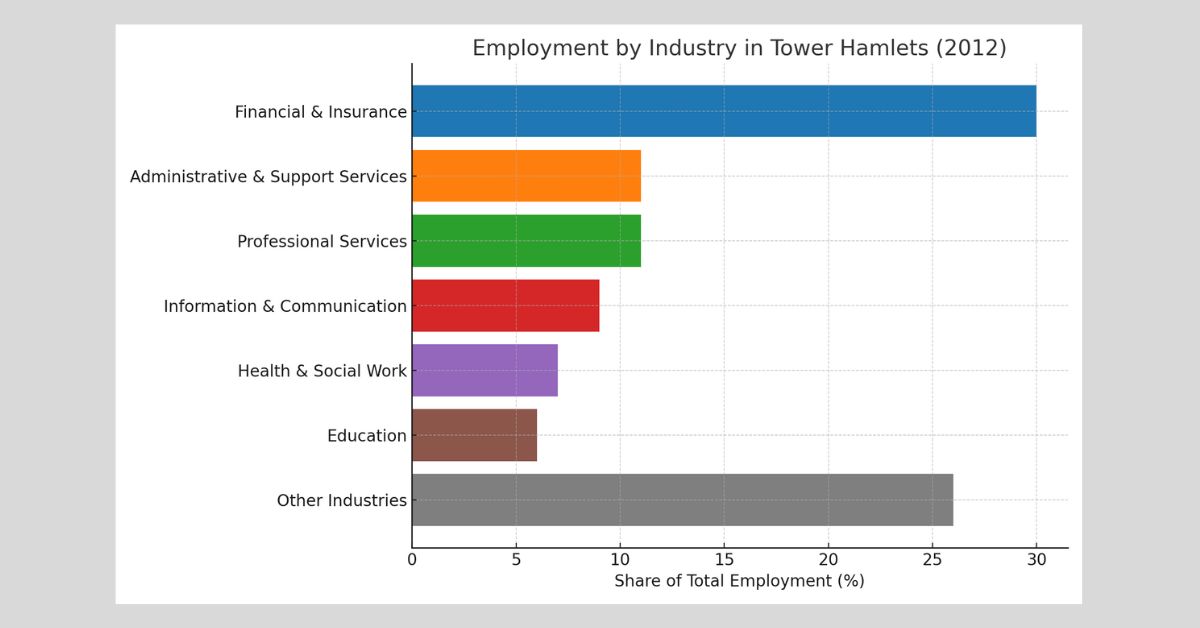
🏙️ Tower Hamlets Is Booming: Over 240,000 Jobs in the Borough
Tower Hamlets, long known for its rich culture and heritage, has evolved into a major player in London’s economy. According to official figures, the borough recorded over 240,000 local jobs in 2012, a significant jump from 209,000 in 2009—a 15% growth in just three years.
📊 This rapid growth made Tower Hamlets the fastest-growing employment area in London during that time.
📌 Where Are These Jobs? Canary Wharf Leads the Way
The Canary Wharf and Isle of Dogs area alone accounted for over 129,000 jobs, which is more than 54% of the borough’s total employment. When including the City Fringe (e.g., Whitechapel, Aldgate), this rises to 81%.

These zones are home to major UK and international employers, particularly in:
- 🏦 Financial & Insurance Services
- 📊 Professional & Technical Services
- 🧾 Administrative & Support Services
- 🖥️ Information & Communication
- 🏥 Health and Education
🧑💼 Who’s Filling These Jobs?
While employment is booming, a large portion of these roles are filled by commuters from outside the borough. This presents a key challenge: ensuring local residents can access these opportunities through training and skills development.
🎯 Bridging the skills gap could unlock more inclusive growth.
🌍 Why Tower Hamlets? A Strategic Location
Located just east of the City of London, Tower Hamlets is perfectly positioned. Strong public transport, commercial zones, and major regeneration projects make it an attractive base for:
- Global financial firms
- Creative and tech startups
- Public sector agencies
🔮 What’s Next for Tower Hamlets?
As investment continues to pour into the borough—from Whitechapel’s Life Sciences cluster to affordable workspace developments—the job market is expected to keep expanding.
This isn’t just a financial hub. It’s becoming a diverse economic powerhouse with opportunities in retail, education, arts, food, logistics, and more.
📢 Final Thoughts
Tower Hamlets is not only growing fast—it’s redefining what local employment looks like in East London. Whether you’re a resident, business, or policymaker, understanding this shift is key to shaping the future.
🧭 Stay tuned for more posts in this series as we explore industry-specific trends, growth areas, and the changing face of Tower Hamlets.

